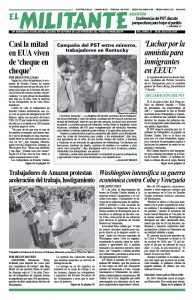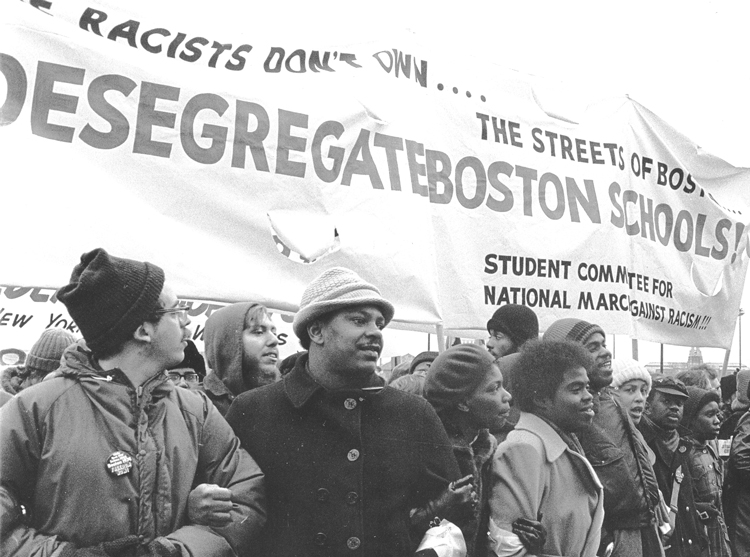Divisions within the Democratic Party blew up after its leadership led the party to vote for a House bill backed by President Donald Trump to fund immigration and border cops that didn’t restrict how the funds could be used.
Only four Democrats opposed the bill — Alexandria Ocasio-Cortez, Ilhan Omar, Ayanna Pressley and Rashida Tlaib. All are backed by Democratic Socialists of America, which seeks to bolster the Democratic Party with a program to expand the federal government to reform capitalism.
“All these people have their public whatever and their Twitter world, but they didn’t have any following,” House Speaker Nancy Pelosi said after the “squad,” as the four representatives are called, denounced the Democratic majority vote. “They’re four people and that’s how many votes they got.”
Ocasio-Cortez responded with race-baiting, claiming Pelosi was taking aim at them because they are “newly elected people of color.” Days later, Ocasio-Cortez’s chief of staff, Saikat Chakrabarti, charged the Democratic Party leadership was “hell-bent to do to black and brown people what the old Southern Democrats did in the 40s,” — referring to the Democrats’ leading role in running Jim Crow segregation in the South.
He singled out Rep. Sharice Davids’ vote on the bill, saying she voted “to enable a racist system.” Davids is Native American.
Smears of racism and race-baiting that rejects someone’s opinion because of their skin color have become increasingly common on the left of capitalist politics in recent years to shut down debate. Such methods repel most working people, Black and Caucasian alike.
There was nothing “racist” in Pelosi’s remarks. Pelosi herself is not above making sham charges of racism against opponents, calling Republican Sen. Mitch McConnell a “racist” in 2010 when he said he wanted Barack Obama to be a “one-term President.”
Pelosi called President Trump a racist after he vilified the four congresswomen in a sharply anti-immigrant remark. In a tweet he asked, “Why don’t they go back and help fix the totally broken and crime infested places from which they came.” This is despite the fact that three of the four were born in the U.S.
New York Times columnist Paul Krugman claimed Trump’s slur was “a moment of truth” that proved that what motivated his “base” — the millions of workers who voted for him looking for some way out of the social, moral and economic crisis of capitalism bearing down on working people — is “not economic anxiety” but “racism.”
Krugman, like many liberals and the left, considers working people bigoted and backward, and argues they should be written off by the Democratic Party.
Times columnist Michelle Goldberg worried that Trump’s smears “momentarily smoothed over divisions” among Democrats, but the party’s “fissures remain.”
And the use of race-baiting to try and shut down political discussion and debate will rear its head again and again.
Place of fight for Black rights
Liberals and those in the middle-class left frequently use the term “people of color” rather than Black or African American. This obscures the powerful accomplishments made in the fight for Black rights and the decisive role of African Americans in the class struggle.
The Black nationality in the U.S. was forged and shaped through slave revolts, the Second American Revolution to overturn slavery, Radical Reconstruction and the fight for the 13th, 14th and 15th Amendments that expanded constitutional rights — as well as the mass movement that overthrew Jim Crow segregation and transformed social views in ways that continue to impact on politics today.
Workers who are African American have been at the forefront of every struggle against oppression and in forging a vanguard of the working class that has — and will — fight against discrimination and capitalist exploitation.
The liberal media spent days praising the performance of Kamala Harris, one of 24 Democrats vying for the party’s presidential nomination, during their candidates debate June 27. She pounced on front-runner Joe Biden for his refusal to support federal government mandated busing to desegregate white-only schools in the 1970s.
Harris, who is Black, described her own experience being bused to school. But after the debate, Harris clarified that she is generally opposed to what is called “forced busing” by opponents of desegregation, explaining the busing program she was in, in Berkeley, was voluntary. Her position is virtually the same as Biden’s. She was using the fact that she is Black, and that Biden opposed busing, to seek factional advantage.
Both the Democratic and Republican parties are fractured today, reflecting the political crisis of the capitalist rulers and their fear of the “deplorables,” as Hillary Clinton called the working class in 2016. As Socialist Workers Party leader Steve Clark said in his introduction to The Clintons’ Anti-Working-Class Record: Why Washington Fears Working People, “the financial capitalists and well-paid professionals who serve them sense that mounting struggle — class struggle — lies ahead.”


